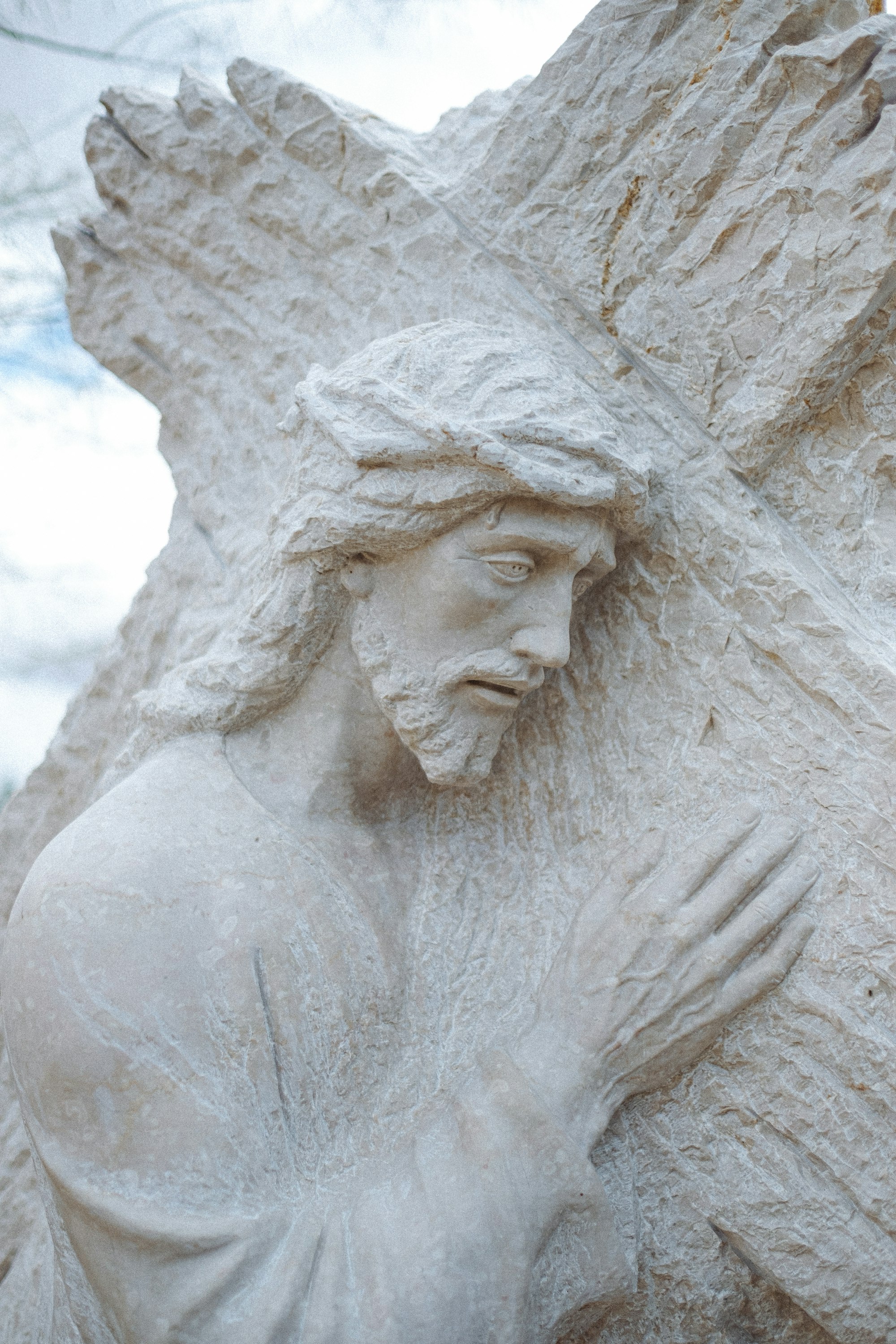good friday

On the question of submission: it's meant to be a two-way street. It only works if both parties are fully on board and have enough humility and love to follow through.
This is what makes it so unpleasant: the command isn't simply to pairs in relationships ("submit yourselves one to another"), but also to individuals. When everyone follows the command to "submit" and "esteem others more highly than yourself," everything's hunky-dory and we can sing Kum ba yah.
Unfortunately, as the people who originally sang that song know better than you or I ever will, when someone chooses to dominate, exploit, and subjugate rather than to submit, uplift, and honor, there's not a word awful enough to describe the consequences.
When the balance of mutual submission is broken, does that mean all bets are off and it's every man for himself? At that point, does anything go and the ends justify the means? Shall we commit murder because others commit murder? Shall we lie, steal, and cheat because others lie, steal, and cheat? Or shall we remain morally neutral and simply avoid the conflict altogether?
No. Not at all.
Those who follow Christ submit to all governing authorities, just as he did on the 3rd of April, 1,989 years ago. The religious leaders falsely accused him. Jesus did not defend himself. The Romans stripped him, struck him, and spit on him, but he turned the other cheek and went the extra mile. He submitted even unto humiliation and death.
The only wicked command he failed to complete was to carry his own cross (Matthew 27:32; Mark 15:21; Luke 23:26) from Jerusalem to the place where the governing authorities would cruelly murder him. Jesus stumbled under the weight of his cross, thus definitively showing that the creator of the universe can, in fact, create a load too heavy for himself to lift.

So why? Why did Jesus submit to the religious hypocrites and the evil Roman empire?
For those of us who wear WWJD bracelets, this is one of the cases where we don't have to wonder "what would Jesus do" if he were born under the rule of a tyrannical government that tortured and killed the people it systematically subjugated and exploited. We don't have to wonder how the Lord would choose to fight an oppressive nation if he were a human who had to live in one. We don't have to wonder how he would save the people he loves so much.
"Vengeance is mine, declares the Lord." And how did he take vengeance?
Through submission.
When it was finished, instead of dominating the ones who killed him with swords, or words, or even some clever twist of the story, he loved and prayed for the people who murdered him. "Father, forgive them" he said.
God owns the cattle on a thousand hills, yet, as a human, he chose to live a life of poverty.
He is the mighty creator of the universe, yet he chose a weak body that could stumble and die.
He is the righteous judge of the world, yet he chose the same mercy for the people who loved him and the people who spit on him.
He can call a thousand legions of angles with a single word, yet rather than starting a new battle, he ended the oldest and deadliest war in history–once and for all.
And how did he end that war?
By submitting.
Through his submission, he made it so that those who lose wars don't have to die. He made it so that those who suffer the worst atrocities on Earth don't have to endure them forever. He made it so that the moment of death for all who suffer doesn't have to be a moment of defeat and humiliation, but a moment of victory.
We hate war because it leads to suffering and death. Jesus showed us the path to defeat suffering and death. He blazed the trail to show us the way. By submitting to death itself and setting an example showing that if we do as he did, we will rise again exactly like he did.
Don't mistake suffering and death as the most horrible things in the world. "Rejoice and be glad" when you suffer on Earth. Adam and Eve died on the day when they ate the fruit in the garden, yet they continued to move, breathe, and suffer despite the death they had already experienced.
Now, Christ Jesus, showed us the path through death into life when he said that his followers must, "take up their cross."

This familiar phrase has suffered under the abuse of many interpretations over the years, so let's simply use the time Jesus literally took up his cross as a foundation:
Jesus took up his cross by living innocently in a world that uses and abuses innocence. Jesus had every opportunity for military domination, yet he never took those opportunities (I'll explore this theme in another post on Yoder's book). He had every opportunity for religious domination, using his miraculous powers to prove his divine authority, yet he only used that power to heal the sick. Even in his trial on Good Friday in the year 33, he could have spoken up and defended himself, yet he chose not to.
All of those choices were necessary for Jesus to, "take up his cross." He submitted.
conclusion
Good Friday obviously motivated this post coming out today. I pulled heavily from Foster's chapter on submission, but thought it would be well supplemented with John Howard Yoder's discussion of imitating the life of Jesus. Yoder argues that when Jesus said, "Whoever wants to be my disciple must deny themselves and take up their cross daily and follow me," it was a call for his disciples to radically deny their right to power and self-importance in such a way that it leads to the shame and torture that the actual cross represented. If you'd like to read more, check out his book, The Politics of Jesus.
subscribe to get email updates and support my work
Click the link below or the subscribe button at the bottom of the page to support my work and get an email every time I make a new post!



